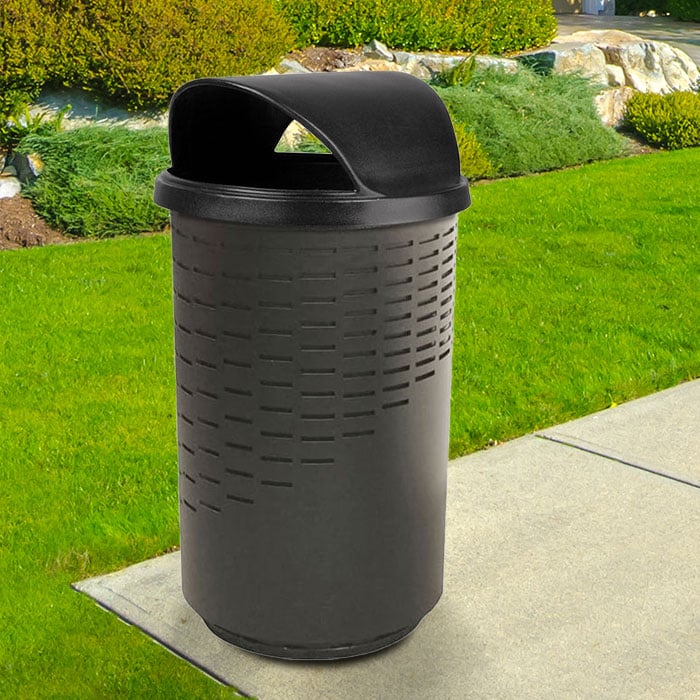In today’s urban landscapes, the management of waste has become a critical issue, demanding innovative solutions to improve efficiency and sustainability. One such advancement is the integration of built-in sensors into commercial trash cans, revolutionizing traditional waste management practices. These smart trash cans utilize cutting-edge technology to monitor their fill levels in real-time, enabling timely collection and optimization of waste collection routes. The primary advantage of commercial trash cans with built-in sensors lies in their ability to provide accurate and up-to-date data on waste levels. This real-time monitoring ensures that bins are emptied promptly when nearing capacity, eliminating the inefficiencies of both underfilled and overfilled bins. This proactive approach not only enhances cleanliness but also reduces operational costs associated with unnecessary collections and overflow cleanup. By optimizing collection routes based on actual fill levels rather than fixed schedules, vehicles consume less fuel and emit fewer pollutants, thus mitigating the environmental impact of urban waste disposal.

This reduction in emissions aligns with global efforts to combat climate change and promote greener cities. Additionally, the integration of sensors into commercial trash cans facilitates data-driven decision-making for municipal authorities and waste management companies. Historical data on fill patterns can be analyzed to forecast future waste generation trends, enabling better resource allocation and operational planning. This predictive capability enhances overall system efficiency and resilience, ensuring that cities can adapt to fluctuating waste volumes and demographic changes over time. Furthermore, these smart trash cans promote public hygiene and improve the quality of life for urban residents. By reducing instances of overflowing bins and litter accumulation, they create cleaner and more attractive public spaces. This, in turn, fosters community pride and encourages responsible waste disposal behaviors among citizens, contributing to a more sustainable urban environment.
The implementation of sensors in commercial trash cans also supports the concept of a circular economy by facilitating better waste segregation and recycling efforts. Smart bins can be equipped with compartments for different types of waste, encouraging users to separate recyclables from general waste at the point of disposal. This segregation streamlines the recycling process and enhances the recovery of valuable materials, promoting a more sustainable approach to waste management. In conclusion, the introduction of built-in sensors in commercial trash cans represents a significant advancement in urban waste management. By leveraging real-time data analytics, these smart bins optimize collection schedules, reduce operational costs, and minimize environmental impact. They empower cities to adopt proactive and sustainable waste management practices while enhancing public cleanliness and fostering community engagement. As technology continues to evolve, the integration of smart solutions like sensor-equipped trash cans will play an increasingly vital role in creating cleaner, healthier, and more resilient urban environments for future generations.
